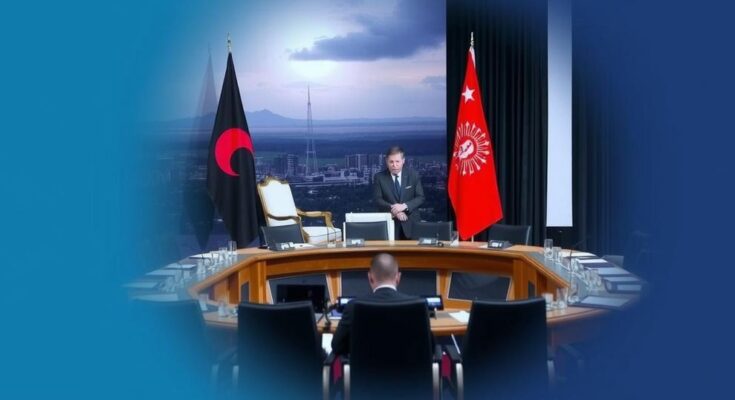At COP29 in Baku, Albanian PM Edi Rama criticized the inaction of major polluters, questioning the summit’s efficacy. Citing rising carbon emissions, he called for genuine political commitment and action. Leaders like Shehbaz Sharif and Gaston Browne echoed the need for financial support for vulnerable nations, urging developed countries to fulfill climate finance commitments. The summit highlighted urgent calls for concrete steps to combat climate change.
At the COP29 summit in Baku, Albania’s Prime Minister Edi Rama openly criticized the perceived ineffectiveness of the conference, questioning the point of such gatherings if the most significant polluters continue their harmful practices unchanged. He expressed disillusionment after observing leaders engaging in casual socializing while serious discussions on combating climate change took a backseat, emphasizing that hollow promises fail to bring about meaningful action. Rama highlighted the alarming increase in carbon emissions reported by the UN Secretary-General, signaling dire implications for global efforts to address climate change if political will remains absent. Other leaders, including Pakistan’s Prime Minister Shehbaz Sharif and Antigua’s Prime Minister Gaston Browne, echoed the urgent need for financial support, particularly grants, to bolster climate initiatives in vulnerable nations. This sentiment was reinforced by the call for a robust climate finance mechanism to ensure justice for nations disproportionately affected by climate impacts. The summit also spotlighted commitments from 25 countries to enhance climate action and foster collaboration among financial institutions to stabilize support for climate mitigation strategies. While progress is being advocated, stark warnings regarding the escalating emissions crisis linger, necessitating swift and tangible commitments from developed nations.
The COP29 summit serves as a crucial platform for international leaders to discuss and formulate strategies to combat climate change, an ever-pressing global crisis with severe implications for the environment and vulnerable populations. Central to these discussions are calls for accountability from major polluting nations, alongside demands for enhanced financial support for affected regions. The voices of leaders from vulnerable states are increasingly urgent, reflecting their immediate struggles with climate-induced challenges and the necessity for rich nations to fulfill their commitments for climate financing. The events at COP29 emphasize the importance of aligning political will with actionable steps to mitigate climate change impacts globally.
The sentiments voiced by various leaders at COP29 underscore a growing frustration with the lack of concrete action against climate change. Prime Minister Edi Rama’s critique of the summit reflects a broader concern that without genuine political resolve and collaboration, meaningful progress remains elusive. As discussions unfold, the priority for many nations lies in securing adequate financial support, particularly for vulnerable states, to implement effective climate measures. Moving forward, it is imperative that commitments translate into tangible actions to avert an impending climate crisis, ensuring justice and support for those already facing its effects.
Original Source: www.theguardian.com




